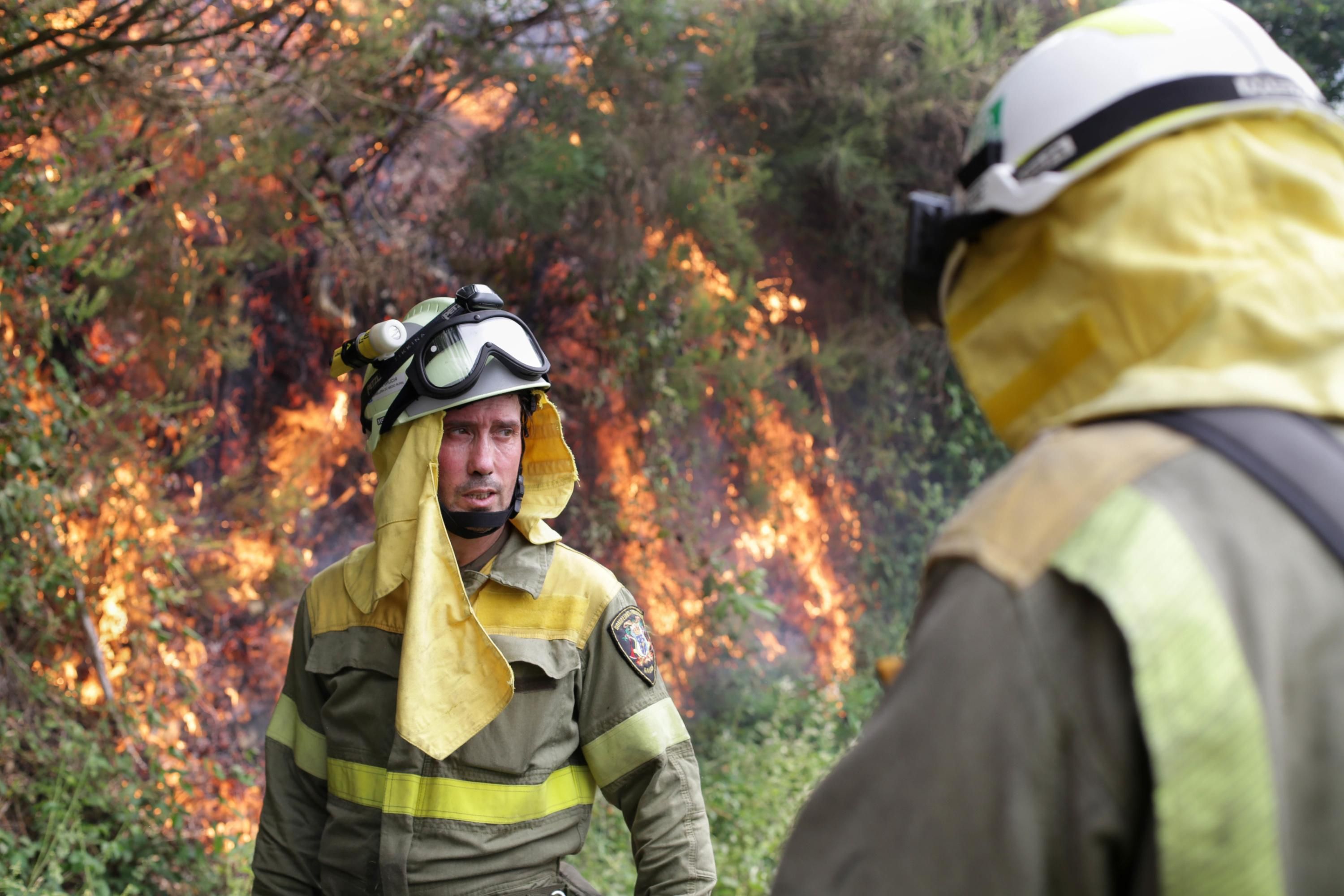
Several countries across Europe are enduring the dangerous hot conditions that climate scientists have longed warned of and meteorologists project the brutal heatwave could last in some areas through next month.
Spain and Portugal have faced high temperatures since last Friday. According to CNN, at least three Spanish cities set records this week: Ourense at 43.2°C (109.76°F); Soria at 38.7°C (101.66°F); and Zamora at 41.1°C (105.98°F).
In Portugal, the network noted, "eight out of the country's 18 mainland districts have been placed under a red weather warning by the Portuguese Institute for the Sea and Atmosphere (IPMA)."
Both nations plus France are also battling wildfires that have forced evacuations and destroyed thousands of acres across the region. Blazes have also hit Croatia's Adriatic Sea coast, where firefighter Boris Dukić told state television that "it's hell, we don't know where to go first."
AccuWeather senior meteorologist Tyler Roys said this week that the European heatwave could be one of the continent's worst since 1757.
"There is concern that this heat could become a long-duration heatwave (20 or more days) for many locations from Portugal to central France and interior southeastern Europe as it could last for the rest of July and continue into August," explained Roys, referring to an area that includes parts of Bosnia, Bulgaria, Croatia, Hungary, Romania, and Serbia.
"July all-time records are at risk of being approached, tied, or even broken across Ireland and the United Kingdom," he added. "This includes individual cities such as Birmingham, Dublin, Manchester, and York."
The Met Office, the U.K.'s national meteorological service, on Friday issued its first-ever red warning for high heat.
"Exceptional, perhaps record-breaking temperatures are likely early next week, quite widely across the red warning area on Monday, and focused a little more east and north on Tuesday," said Paul Gundersen, the office's chief meteorologist. He added that there's a 50% chance temperatures top 40°C (104°F) and an 80% chance of a new maximum temperature.
"Nights are also likely to be exceptionally warm, especially in urban areas. This is likely to lead to widespread impacts on people and infrastructure," he continued. "Therefore, it is important people plan for the heat and consider changing their routines. This level of heat can have adverse health effects."
Nikos Christidis, a climate attribution scientist at the office, addressed how the current heatwave relates to the fossil fuel-driven global emergency:
In a recent study we found that the likelihood of extremely hot days in the U.K. has been increasing and will continue to do so during the course of the century, with the most extreme temperatures expected to be observed in the southeast of England.
Climate change has already influenced the likelihood of temperature extremes in the U.K. The chances of seeing 40°C days in the U.K. could be as much as 10 times more likely in the current climate than under a natural climate unaffected by human influence. The likelihood of exceeding 40°C anywhere in the U.K. in a given year has also been rapidly increasing, and, even with current pledges on emissions reductions, such extremes could be taking place every 15 years in the climate of 2100.
Reuters reported that "a study in the journal Nature last week found the number of heatwaves in Europe has increased three-to-four times faster than in the rest of the northern mid-latitudes, such as the United States and Canada, due in large part to the jet stream air current splitting into two parts for longer periods."
"Europe is very much affected by changes in atmospheric circulation," study co-author and Columbia University climate scientist Kai Kornhuber told the news agency. "It's a heatwave hotspot."
However, Europe isn't alone in enduring high temperatures. Axios pointed out that the European heatwave "is hitting at the same time as record hot temperatures are affecting China and triple-digit temperatures are testing the reliability of the Texas electrical grid."
The extreme heat has led campaigners to demand that governments—particularly the rich countries disproportionately responsible for planet-warming emissions—act much more urgently to tackle the climate emergency, especially by rapidly transitioning to clean energy.
As the advocacy group Food & Water Watch put it Thursday: "These record-breaking heatwaves and wildfire risks could be mitigated with serious government commitments to cutting fossil fuel emissions!"
This content originally appeared on Common Dreams - Breaking News & Views for the Progressive Community and was authored by Jessica Corbett.
Jessica Corbett | Radio Free (2022-07-15T17:45:58+00:00) ‘Europe Is Cooking’: Records Smashed as Historic Heat Alert Issued. Retrieved from https://www.radiofree.org/2022/07/15/europe-is-cooking-records-smashed-as-historic-heat-alert-issued/
Please log in to upload a file.
There are no updates yet.
Click the Upload button above to add an update.